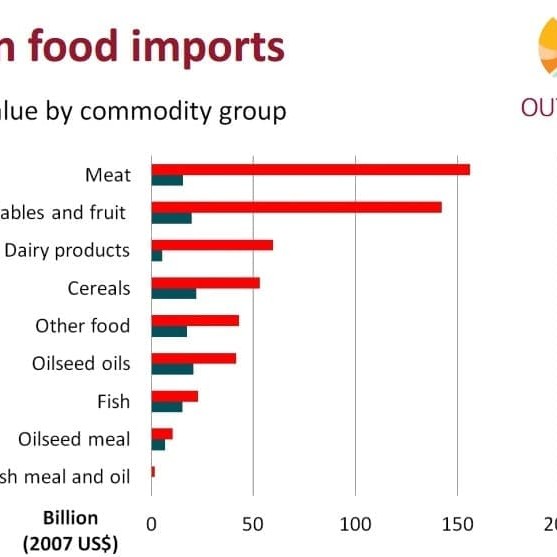 The world’s demand for food will increase by a massive 75 percent by the year 2050, putting food security and reform within the agriculture sector at the top of the agendas for business and governments.
The world’s demand for food will increase by a massive 75 percent by the year 2050, putting food security and reform within the agriculture sector at the top of the agendas for business and governments.
Delegates attending the ABARES Outlook 2013 conference in Canberra this morning heard that productivity gains would be vital in placing Australia’s farmers at the forefront among suppliers benefitting from the world’s growing appetite for food.
ABARES economist Jammie Penm told the gathering that increased demand for more food and high-quality products in Asia opened up significant opportunities for Australian agriculture. But he warned that competition would be fierce.
“Competition will come from all around the world, but also from increased production in the Asian region, itself,” Mr Penm said.
“ABARES modelling shows food production in Asia is expected to increase significantly to 2050 as countries have greater potential to increase their agricultural productivity.
 “Increased supply from Asia and further abroad is likely to dampen projected price rises in the future. This means Australian farmers will need to boost their productivity to compete,” Mr Penm said.
“Increased supply from Asia and further abroad is likely to dampen projected price rises in the future. This means Australian farmers will need to boost their productivity to compete,” Mr Penm said.
Looking from a global perspective, director of trade and agriculture at the Organisation for Economic Co-operation and Development (OECD), Ken Ash said ‘business as usual’ would not deliver global food security.
“New policy approaches are needed in a number of areas,” Mr Ash said.
“We need an improved climate for trade and investment, demand-driven agriculture innovation systems, more efficient use of land, water and biodiversity resources, and effective risk-management tools,” he said.
The challenges and opportunities faced by agricultural industries were further reinforced by director of the trade and markets division at the United Nations Food and Agriculture Organisation (FAO), David Hallam, who provided insights into the food security of developing countries.
“There are complex economic, political, institutional, legal and ethical issues relating to food security,” Mr Hallam said.
These also tied-in with issues around poverty reduction, rural development, technology and access to land and water resources.
“Developing countries face the challenge of managing and attracting foreign capital, while trying to ensure investments actually deliver benefits to their nations and investors,” he said.
- The 2013 ABARES Outlook conference, with the theme of ‘Future food, future farming’, is being held today and tomorrow in Canberra.
